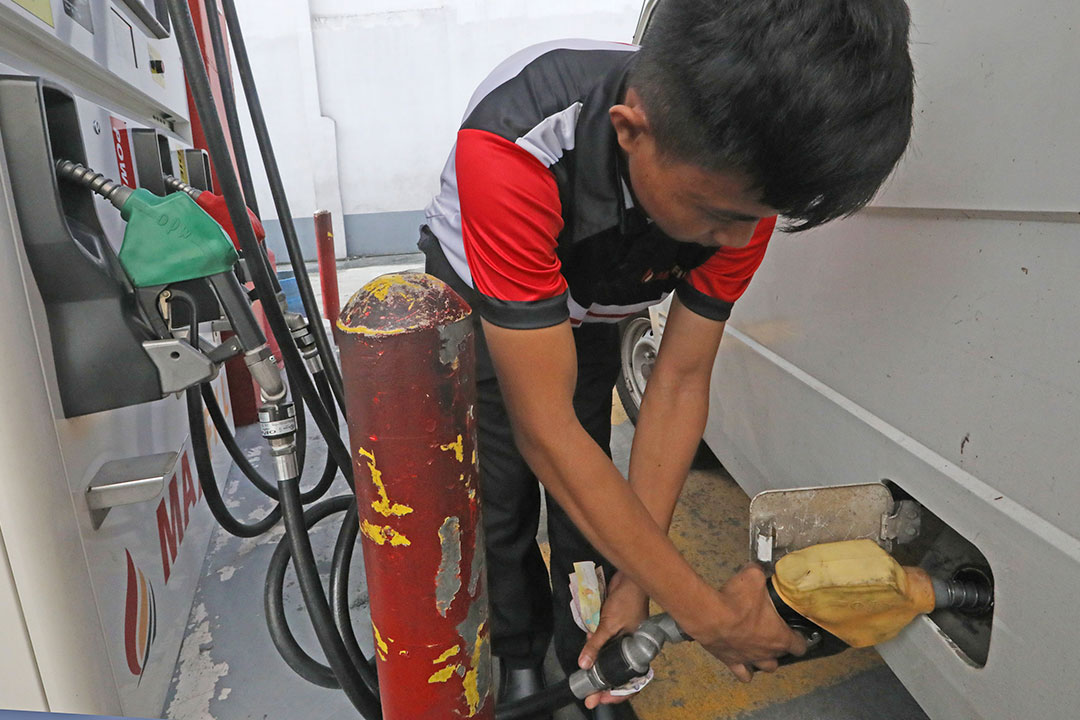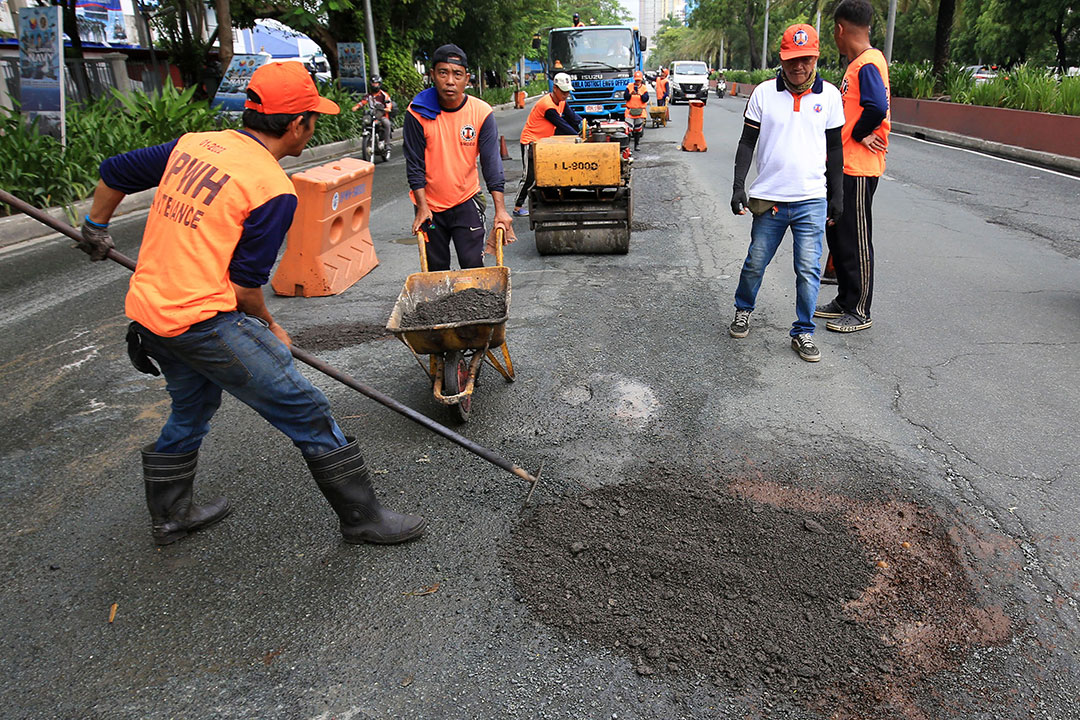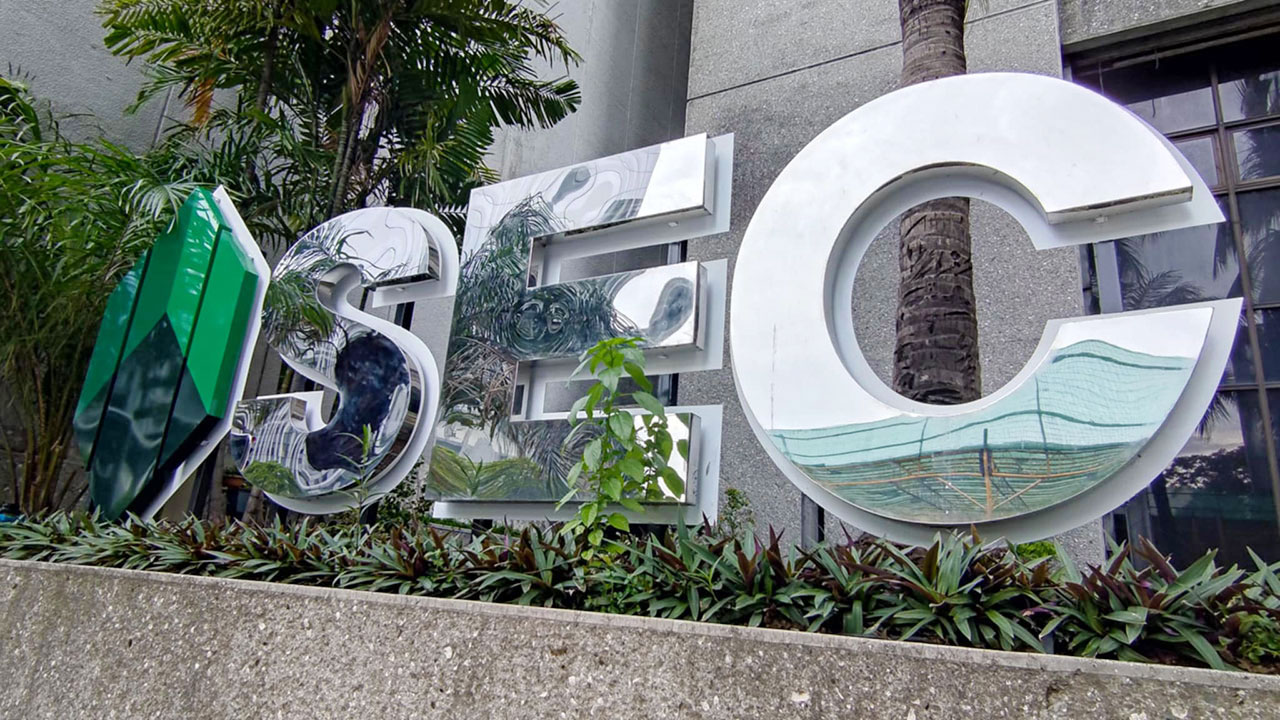
Upgrade to High-Speed Internet for only ₱1499/month!
Enjoy up to 100 Mbps fiber broadband, perfect for browsing, streaming, and gaming.
Visit Suniway.ph to learn
 An attendant fills up a vehicle at a gasoline station in Manila, Sept. 18, 2023. — PHILIPPINE STAR/EDD GUMBAN
An attendant fills up a vehicle at a gasoline station in Manila, Sept. 18, 2023. — PHILIPPINE STAR/EDD GUMBANBy Sheldeen Joy Talavera, Reporter
THE DECISION to postpone the mandated increases in the biodiesel blend this year and next year is a welcome development if it is intended to alleviate price pressures from the cost of coco methyl ester (CME), an industry player said.
Leo P. Bellas, president of Jetti Petroleum, Inc., said that suspending the implementation of the B4 biodiesel blend, which contains 4% CME, might be intended to prevent a further increase in the price of the component.
“If the move to suspend the implementation of B4 would help prevent the price of CME from spiking further, this will be a welcome development to the downstream oil industry, given that the current cost of CME is almost close to three times the price of the base diesel fuel,” he told BusinessWorld.
CME is a biodiesel component derived from coconut oil.
In a briefing on Friday last week, Energy Undersecretary Alessandro O. Sales said that the National Biofuels Board (NBB) passed a resolution to suspend the implementation of the B4 blend in October this year and B5 next year.
“This was decided because of the prevailing high cost of coconut oil, which is the principal feedstock for our coco methyl ester (CME) as the biodiesel component in the diesel being sold in the Philippines,” he said.
Mr. Sales said that the price of coconut oil in the international market at the start of the year was about $1,100 per metric ton. This has increased to over $3,000 per metric ton at the time of the NBB’s decision.
“The price last week has now subsided a bit, just below $3,000 per metric ton. But still, it is a significant increase, and the increase actually translates to a higher cost of diesel at the pump because of the mandate, and increasing the mandate now to B4 would add to this price pressure,” he said.
While the suspension is likely to proceed as planned, Mr. Sales said that there will be a periodic review and “the intent to increase the blend still is there.”
Eugene Erik C. Lim, president and chief executive officer of Top Line Business Development Corp. (Topline), said that the company’s business operations remain the same, “pending any implementation from the DoE (Department of Energy).”
“We are ready for any changes from the regulators that will comply with Philippine standards,” he said.
Meanwhile, Chemrez Technologies, Inc., the country’s largest biodiesel manufacturer, said that the industry awaits “a more definite date” for the resumption of the B4 mandate from the board. However, it would need at least five months to prepare for implementation.
“Coconut is our feedstock for biodiesel and the El Niño of 2024 adversely affected supplies in 2025. The NBB and PCA (Philippine Coconut Authority) have evaluated the supply situation and have given a sensible recommendation to postpone B4,” Chemrez President Dean A. Lao, Jr. said.
“The progression towards B5 remains a sound and sustainable solution for the Philippines to attain its economic, environmental, and health goals,” he added.
The Biofuels Act of 2006 mandates that all liquid fuels for motors and engines contain locally sourced biofuel components.
The DoE has begun mandating oil companies to increase the biodiesel blend to 3% on Oct. 1, 2024. This is supposed to increase to 4% by Oct. 1, and to 5% a year after.
At the same time, oil companies can also offer gasoline fuel containing a 20% bioethanol blend on a voluntary basis. At present, the DoE has mandated a 10% bioethanol blend by volume in all gasoline fuel sold locally.
Mr. Sales said that there are oil firms that expressed intent to voluntarily increase to E20, such as Jetti.
“We have already introduced E20 in one of our stations and plan to make the E20 gasoline available in three to four upcoming new stations,” Jetti’s Mr. Bellas said. “We have no plans at the moment to make E20 the default in all stations.”
Meanwhile, Topline’s Mr. Lim said that the company is also considering the increase.




